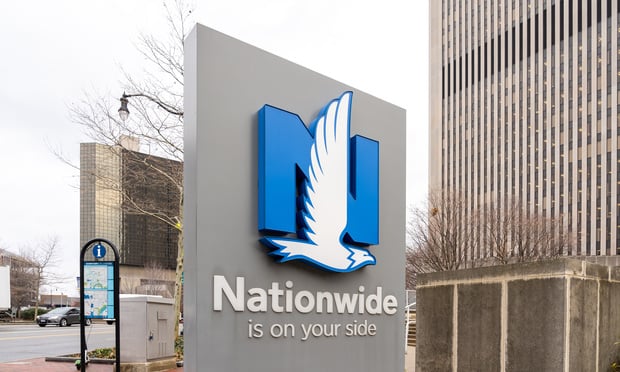washington
A total of 135 national and regional financial services firms–including a number of property-casualty insurance players from both the company and producer side–sent a letter last week to the U.S. Senate Banking Committee asking for passage of legislation creating an optional federal charter.
The letter set off a firestorm of criticism from opponents of the OFC initiative, including the Independent Insurance Agents & Brokers of America and the National Association of Mutual Insurance Companies. IIABA said a federal charter option is still “not the best or right solution for regulatory reform in the industry.”
Against the background of a hearing on less far-reaching legislation being drafted by the House Financial Services Committee last week (see accompanying story), Robert Hunter, insurance director for the Consumer Federation of America, said the letter constituted the “death knell” for the House initiative, known as the SMART bill, which would set federal standards for state regulation.
Other industry officials, however, discounted such a dire conclusion, with one pointing out that several of the trade groups and their members who signed on to the letter to the Senate also are strong supporters of the SMART bill. These include the American Insurance Association and the Council of Insurance Agents & Brokers. In addition, observers note that the House's proposed State Modernization and Regulatory Transparency Act has strong bipartisan support.
“Consumers, and the insurers and insurance agents that serve them, need a modern insurance regulatory system that provides greater product choice and portability,” the Optional Federal Charter Coalition said in its letter.
The letter said that establishing an optional federal charter would not supplant state regulation or state premium taxation. “The new system would allow insurers and agents to choose between state and federal regulation, similar to the dual-banking system that has been in place for more than 140 years,” the letter said.
“The burden of having to comply with rules from 56 separate insurance regulators is too inefficient for companies, agents and consumers to manage, especially those whose interests are national in scope,” the letter continued. “Individual state regulators cannot speak to our national or global interests with the same scope and effectiveness as a strong, federal entity, such as the U.S. Department of Treasury or the Federal Reserve.”
The need for modernization, the letter noted, is a necessity to successfully compete in today's market. To operate or deliver a product to market, insurers face obstacles such as inconsistent regulations, barriers to innovation, and conflicting agent and education requirements, among others, the coalition complained.
One signatory to the letter is Agents For Change–a new producer group created with the support of the Financial Services Roundtable, another proponent of an optional federal charter.
Individual insurers that signed on to the letter include AIG, Allianz, Allstate, Chubb, John Hancock, MassMutual, Northwestern Mutual, Phoenix Life, the Principal Financial Group, Prudential, St. Paul Travelers, State Farm, Sun Life, The Hartford, W.R. Berkley, Willis Group and Zurich.
In its response to the letter sent to all Senate Banking Committee members, the IIABA said it “respectfully takes issue” with its conclusions.
“While the letter leaves the impression that many insurance companies support federal regulation, it has been our experience that the vast majority of insurance companies, and an overwhelming number of agents and brokers, oppose an optional federal charter for the insurance marketplace,” said Charles E. Symington Jr., IIABA's senior vice president for government affairs and federal relations.
Although the supporters of OFC say it would not supplant state regulation, IIABA believes “such an occurrence would be inevitable, to the detriment of consumers and producers,” Mr. Symington said.
Mr. Hunter–who opposes SMART as well as any other initiative seen as stepping on the toes of state regulators–analyzed the letter to the Senate as “pulling the rug out from under” Rep. Mike Oxley, R-Ohio, chairman of the House Financial Services Committee and a key advocate for federal standards regulation as contained in the SMART Act his committee is drafting.
Mr. Hunter, a former Texas insurance commissioner, believes federal involvement undermines consumer protection, which he said is the primary concern of state regulation. “Because Rep. Oxley has said he could never support an OFC, this is a slap of Rep. Oxley after eight weeks of work on SMART,” he said. “The timing is atrocious. It sounds like, 'We work with you for eight weeks and then we slap you in the face.' It is remarkable.”
Similar comments were voiced by officials of the NAMIC. “Proposals for federal charters offer few, if any, advantages for consumers, and consumer interests have not been central to the proponents of a federal charter,” David Winston, senior vice president for federal affairs, said in a letter being sent by NAMIC to members of the Senate Banking Committee.
“In fact, from a consumer's perspective, the state system of regulation has performed admirably throughout its history,” Mr. Winston said. “State insurance regulation has proven to be adaptable, accessible and relatively efficient, with rare insolvencies and no taxpayer bailouts.”
Joel Wood, senior vice president of government affairs at the CIAB, weighed in with strong criticism of Mr. Hunter's view that the letter to the Senate undermines the House initiative. “The beauty of the SMART Act is that it bridges the divide between those who philosophically support a federal regulator and those who are very opposed,” he said.
“We philosophically support the OFC, whereas the IIABA, for example, strongly opposes it,” Mr. Wood added. “Meanwhile, both of our organizations support SMART, which is evidence that [Reps.] Oxley and Baker have momentum and are ahead of the game”
Mr. Wood said “the art of politics is all about the art of compromise. To the extent that these early discussions push the envelope toward federal regulation among senators, it can only give more momentum to those who are trying to occupy and enact a middle-ground approach.”
IIABA's Mr. Symington also rejected Mr. Hunter's contentions. “The Big I strongly disagrees with Mr. Hunter's opinion that the push for an optional federal charter in the Senate negatively impacts the work on SMART in the House,” he said. “The SMART proposal by Chairmen Oxley and [Rep.] Baker is a pragmatic middle-ground proposal and the push for federal regulation in the Senate underscores that fact.”
Callout, with shot Capitol Hill:
“Individual state regulators cannot speak to our national or global interests with the same scope and effectiveness as a strong, federal entity, such as the U.S. Department of Treasury or the Federal Reserve.”
–Letter from coalition of groups seeking an optional federal charter.
Want to continue reading?
Become a Free PropertyCasualty360 Digital Reader
Your access to unlimited PropertyCasualty360 content isn’t changing.
Once you are an ALM digital member, you’ll receive:
- Breaking insurance news and analysis, on-site and via our newsletters and custom alerts
- Weekly Insurance Speak podcast featuring exclusive interviews with industry leaders
- Educational webcasts, white papers, and ebooks from industry thought leaders
- Critical converage of the employee benefits and financial advisory markets on our other ALM sites, BenefitsPRO and ThinkAdvisor
Already have an account? Sign In Now
© 2025 ALM Global, LLC, All Rights Reserved. Request academic re-use from www.copyright.com. All other uses, submit a request to [email protected]. For more information visit Asset & Logo Licensing.








